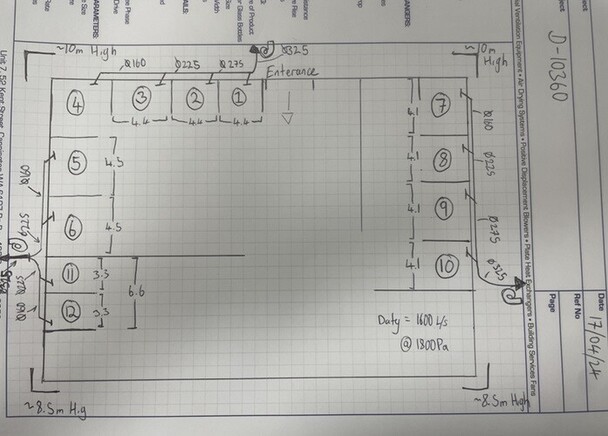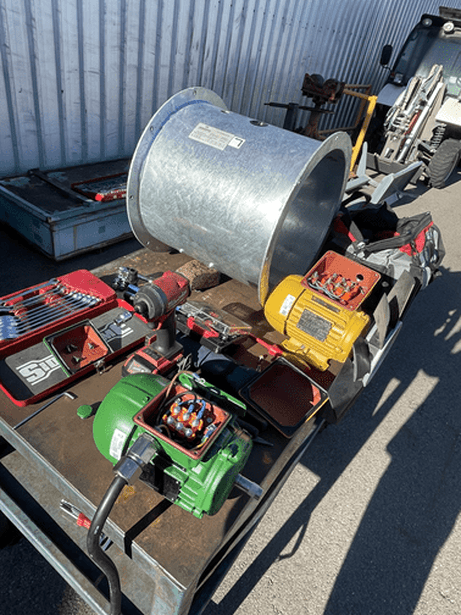Dust, fume and odour management is critical for ensuring worker health, safety, and comfort in various industries. In this often-overlooked domain, the ventilation engineer emerges as an indispensable figure, displaying their specialised skill in designing and implementing ventilation systems tailored for dust, fume and odour control. Their role extends beyond mere compliance with regulations; they have a comprehensive understanding of the unique challenges posed by these environments and apply innovative solutions to mitigate these risks.
Just as we think about civil engineers who specialise in designing bridges to carry and withstand drastic numbers of cars and weights, or electrical engineers who specialise in designing, developing, and installing electrical systems, the ventilation engineer is a bit of an underdog. It is not often spoken about or referred to.
Ventilation engineers are specialists at crafting ventilation systems or finding solutions that address immediate concerns regarding dust and fume dispersion. They strive to optimise air quality and circulation within confined spaces or by containing hazardous substances. By leveraging their knowledge of airflow dynamics, pressure drop, filtration technologies, and contaminant dispersion patterns, they develop tailored ventilation strategies that minimise exposure to hazardous particles and pollutants (that’s according to Sheng Zhang and co-authors in their 2022 study on Contaminant Removal and Contaminant Dispersion). In doing so, ventilation engineers play a vital role in safeguarding the health and well-being of workers operating in construction sites and mining facilities.
Essential to the mining and construction industries
Due to the challenges of dusty work environments, ventilation engineers are essential in the construction and mining industry, especially in confined spaces. Their work must tailor ventilation solutions to reduce dust, heat, and changing environmental conditions. Beyond health concerns, these engineers boost workplace efficiency and compliance by controlling dust and fumes, reducing equipment downtime and maintenance costs, and ensuring adherence to regulations. Their proactive approach also leads to better energy efficiency and resource savings, benefiting both the industry's budgets and the environment.
What makes a good Ventilation Engineer?
Ventilation engineers have a high level of competence in airflow dynamics, practical and logical design sense, ability to solve problems, pay close attention to detail, and communicate effectively with stakeholders. Additionally, the best ventilation engineers have some field experience working in the industry on the workshop floor level. Having this past knowledge of workplace operations and procedures makes understanding the customer's needs and wants that much easier.
Ventilation engineers are pivotal in safeguarding workers' longevity and enhancing efficiency and compliance in construction, mining, and many other industries. As industries evolve, the ventilation engineer's contributions remain vital for creating safe, healthy, and sustainable work environments.
We have a team of ventilation engineers – Dynamic Engineering Australia are the ventilation experts. Ask us.



